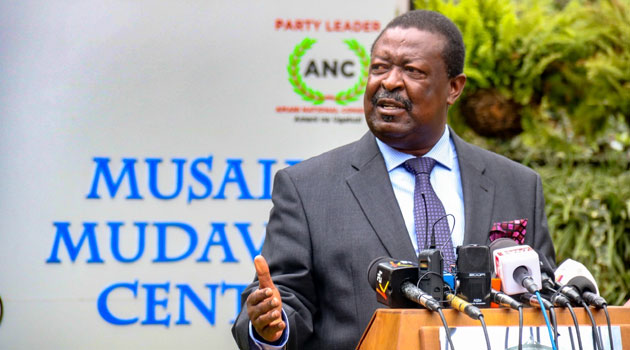Prime Cabinet Secretary Musalia Mudavadi has announced Kenya’s bold ambition to become a regional hub for cancer care, treatment, and innovation. Speaking at the 2nd National Cancer Summit in Nairobi, Mudavadi stressed the urgent need to tackle cancer, which claims thousands of lives annually and severely strains families and the healthcare system.
With over 44,000 new cases reported every year, Mudavadi described cancer as a national crisis that can no longer be ignored. He highlighted how the disease devastates families, burdens the economy, and exposes inequalities in access to healthcare.
“Cancer should not be viewed purely as a medical issue,” he said. “It is a development priority with social and economic dimensions that require a whole-of-society response.”
High treatment costs, according to Mudavadi, continue to drive families into poverty. He called for increased public awareness, urging Kenyans to break the silence around cancer and embrace education, prevention, and empathy.
In a major boost to Kenya’s cancer care infrastructure, Mudavadi launched the country’s first-ever National Radiotherapy Protocols. These guidelines are designed to standardise treatment across all regions, ensuring equitable and quality care regardless of a patient’s location.
“This move will reduce disparities and restore dignity to patients, whether they are in Nairobi, Turkana, or Taita Taveta,” he stated.
Mudavadi commended the Ministry of Health and global partners like the World Health Organization (WHO), the International Atomic Energy Agency (IAEA), and the Union for International Cancer Control (UICC) for supporting Kenya’s growing cancer response systems.
Health Cabinet Secretary Aden Duale echoed these sentiments, warning that cancer has become a leading cause of premature death in the country. He reaffirmed the government’s commitment to expanding access to screening, early diagnosis, treatment, and palliative care through the Universal Health Coverage (UHC) agenda.
Duale also cited the establishment of the Social Health Authority (SHA) and efforts to decentralise oncology services through new regional cancer centres as steps toward building a resilient, inclusive healthcare system.
Both leaders called for collective action involving government, development partners, civil society, academia, and the private sector to confront the cancer crisis head-on.

